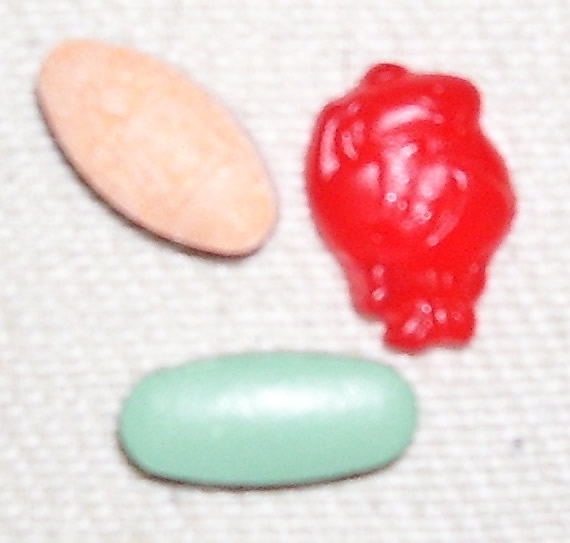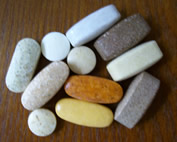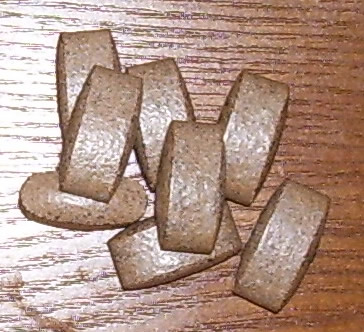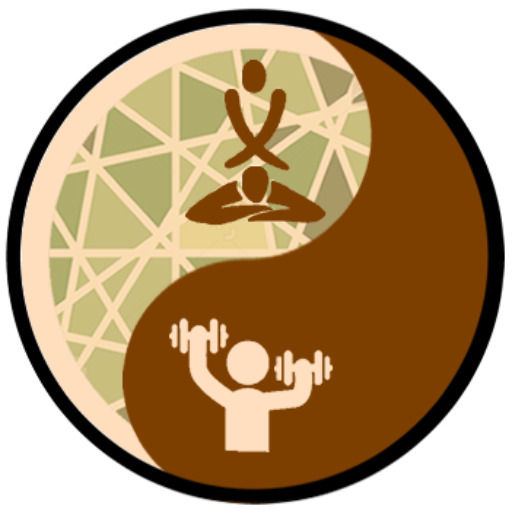


The importance of a multi-vitamin should provide you with basic vitamins and minerals. It can help build a strong foundation for maintaining good health and proper nutrition. Antioxidant nutrients such as vitamin A (Beta-Carotene), Vitamin C, E, and Selenium. Multiple vitamins with plenty of B vitamins like Folic Acid which provides dietary support for a healthy cardiovascular system. Your multiple vitamins should also include traces of minerals with ample zinc. Even though minerals play an important role in our health, Iron is also crucial. Supplements are available with or without iron. Herbs and other ingredients can be found in multiple vitamins as well.
Be sure to choose the best multiple that will fit your needs. Women and men have their own specific ingredients. For those who are vegetarians, high/low cholesterol, diabetic and more…please pay close attention of your intake. Age description plays a big role in our multiple quantity intakes as well as a potency vitamin that offers balanced support. Be aware of your dosage intake.

Water –soluble: These vitamins are absorbed directly into the blood stream, they circulate through the body in water filled areas, and excess amounts are excreted from the body and must be replenished regularly.
- B 1 Vitamin- Recommended daily value 1.5 mg.
- B2 Vitamin- Recommended daily value 1.7 mg.
- Niacin- Recommended daily value 20mg.
- Pantothenic Acid- Recommended daily value 10mg.
- B6 Vitamin
- Folic Acid- Recommended daily value 400mcg.
- B12 Vitamin- Recommended daily value 6mcg.
- C Vitamin- Recommended daily value 60 mg.
Fat-soluble: These vitamins are transported through the body via the lymph system then to the blood, stored in the liver and fat cells throughout the body and are less likely to be excreted from the body.
- A Vitamin- Recommended daily value 5000 IU.
- D Vitamin- Recommended daily value 400 IU.
- E Vitamin- Recommended daily value 30 IU.
- K Vitamin- Recommended daily value 80 mcg.
*The potency of vitamins can be reduced due to poor storage or over cooked foods.


- Vitamin A – A fat-soluble vitamin that is essential for eye health and normal vision. Vitamin A helps form and maintains healthy teeth, skeletal and soft tissue, mucous membranes, and skin. It is also known as retinol because it produces the pigments in the retina of the eye.Carotenoids play a role.
- Acidum Folicum: Amino, hemopoiesis and nucleic acids synthesis.
- Vitamin B1– A water-soluble vitamin that plays a role in energy metabolism. Thiamin- Carbohydrate synthesis of energy. Thiamine (vitamin B1) helps the body cells convert carbohydrates into energy. It is also essential for the functioning of the heart, muscles, and nervous system.
- Vitamin B2- Works with several enzymes in the metabolism of fat, carbohydrates & protein and is essential to energy production.
- Niacin- Also known as B3, provides dietary support for a healthy blood lipid profile which helps produce the reaction in the cell that convert food to energy.
- Pantothenic Acid- Often referred to as Vitamin B5, is essential to metabolic processes in the body. Pathothenic acid is also called vitamin B5. It helps break down carbohydrates, proteins, and fats.
- Vitamin B6- Vitamin B6, B12 and Folic Acid provide dietary support for your cardiovascular system. Protein and Amino Acid play a roll.
- Folic Acid- Adequate folate in healthful diets may reduce a woman’s risk of having a child with a brain or spinal cord defect.
- Vitamin B12- May play a role in the maintenance of normal homocysteine levels such as the nervous system and red blood cells.
- Vitamin C- Helps protect against free radical damage, is necessary for iron absorption and is essential for healthy bones, teeth, skin, tendons, blood vessels, and collagen.
- Vitamin D- Enhances calcium absorption and is necessary for healthy teeth and bones.
- Vitamin E- Daily supplementation provides dietary support for healthy heart, red blood cells, lung, prostate and digestive tract function.
- Vitamin K- Necessary for blood clotting and also helps maintain strong bones.
- Biotin- Water –soluble type of B vitamin, is essential to metabolic processes in the body. It helps break down carbohydrates, proteins, and fats.
- Calcium- Essential for teeth and building bones. Adequate calcium in a healthy diet may reduce the risk of osteoporosis later in life, especially for teen and young adult women.
- Chromium- Plays an important role in glucose utilization and is required for the release of energy from glucose.
- Copper- Involved in collagen formation and in the proper utilization of iron. Copper is also involved in the production of cellular energy.
- Iron- Essential to building blood and transporting oxygen. Iron is also involved in energy utilization and muscle function.
- Magnesium- Helps build bones, activates the enzymes and maintain teeth. Magnesium is involved in nerve, skeletal muscle, heart and cell function.
- Phosphorus- Functions in tooth and bone formation and is involved in the absorption of glucose.
- Potassium- Potassium is a mineral involved in electrical and cellular body functions. In the body, potassium is classified as an electrolyte. It is a very important mineral to the human body. It has various roles in metabolism and body functions and is essential for the proper function of all cells, tissues, and organs:
- Riboflavin: Riboflavin (vitamin B2) works with the other B vitamins. It is important for body growth and red blood cell production and helps in releasing energy from carbohydrates.
- Selenium- Selenium, essential a trace mineral, has a variety of functions. It helps make special proteins, called antioxidant enzymes, which play a role in preventing cell damage. Some medical information suggests that selenium may help prevent certain cancers, but better studies are needed. Supports the antioxidant activity of vitamin E which protects against free radicals.
- Zinc- Zinc is involved in carbohydrate metabolism, glucose utilization and insulin production. Zinc is needed for the body’s defensive (immune) system to properly work. It plays a role in cell division, cell growth, wound healing, and the break down of carbohydrates. Zinc is also needed for the senses of smell and taste.


Protein…protein…protein… “Amino Acids are the Building Blocks of Protein!” There are 2 types of Amino’s Acids: (Essential and Non-Essential)
Essential Amino Acid: There are 9 amino acids that are considered essential to the human body. The human body can not make sufficient amounts to meet the requirements. At times it can not make any at all which make us responsible to supply these amino’s by food consumption or supplement intake.
- Histidine
- Isoleucine
- Leucine
- Lysine
- Methionine
- Phenylalanine
- Threonine
- Tryptophan
- Valine
Non- Essential Amino Acids:There are 11 common amino acids. The human body can synthesize them itself from nitrogen, carbohydrates and fats.
- Alanine
- Arginine
- Asparagine
- Aspartic Acid
- Cysteine
- Glutamic Acid
- Glutamine
- Glycine
- Proline
- Serine
- Tyrosine
(BCAA) Branched-Chain Amino Acid
There are 3 Amino Acids from the Essential group that are considered the Branched-Chain Amino Acid or BCAA, Isoleucine, Leucine and Valine. It makes up1/3 of muscle protein and serves as a source of alanine and glutamine, amino acids that are lost from the body during and after exercise. BCAA help to preserve glycogen and also helps to reduce the amount of protein breakdown.

Compound made up of carbon, hydrogen and oxygen. (Simple & Complex) Carbohydrates are our main energy source. Carbohydrates are classified as simple or complex. The classification depends on the chemical structure of the food, and how quickly the sugar is digested and absorbed. Carbohydrate choices include bread, grains, and starchy vegetables; fruits; dairy products; and sweets. These foods break down into sugar in our blood, which is then stored and used for energy.
Simple: Simple carbohydrates have one (single) or two (double) sugars. Carbs that are (already broken down) and go straight into the bloodstream. Includes; honey, jams, table sugar, candies, soft drink, fruit juices and syrup. Also, Glucose (dextrose) simple sugar.
Complex: Complex carbohydrates have three or more sugars. Compounds of long strings of many simple sugars linked together. Larger molecules that (must be broken down). Both types most be broken down and converted into glucose, before your body is able to absorb and use it for energy. Foods; pasta, grains, breads, cereal, legumes, and vegetables.

Keeps the digestive system functioning, which helps improve metabolism. Besides the beneficial role that fiber plays in relieving constipation, fiber is also helpful by filling you up during meals and lowering blood cholesterol levels. Fiber can be found in whole grain breads and cereals, fruits, and vegetables. Since high fiber foods provide some extra bulk to your diet, these foods break down much more slowly, which helps to stabilize your blood sugar levels? By including high fiber foods in your diet, you will be improving your health and also gaining control over your blood sugar level.

But too much can result in high blood pressure, and your body will retain excess water. Sodium does not control blood sugar levels directly, but it does play a role with the association of hypertension and diabetes. It will be essential for you to follow a low-sodium diet. Eat more fresh foods and less canned, processed items.

There are 3 types of fats: Saturated, Monounsaturated, and Polyunsaturated fats.
Every diet should contain less of the saturated fats, which can be found in meats, dairy products, and hard shortenings. These fats can raise your blood cholesterol levels. The best fats are monounsaturated fats, which can be found in olive, peanut, and canola oils. The polyunsaturated fats found in corn oil, soybean, and safflower oils are also good choices. Fish (Omega 3 Fatty Acid) reduce the risk of heart disease.
After you eat, fat travels into the bloodstream. Fat is an energy source, so therefore you will need insulin to store fat in the cells of your body. So some fat is good. Fat included with meals, in moderation, will help break down the food you eat to be used as energy. Fat is in margarine, butter, oil, salad dressings, nuts, seeds, milk, meat, snack foods, and desserts.


Problems with Gas and Bloating! Digestive enzymes are necessary. The body usually produces these enzymes on its own. If the enzymes are insufficient, the nutrients from food may pass through the digestive system without being fully digested.
Being lactose intolerance is the most common enzyme deficiency. The inability to digest the milk sugar lactose can cause bloating, gas, abdominal distress and even diarrhea. By avoiding milk and dairy, these problems may cease. If you do suffer from lactose intolerance, tablets containing the enzyme Lactase can be taken when consuming dairy foods. The vitamin Calcium and D vitamin are a necessity.
6 Types of ENZYMES & the Aids in the Digestion:
- Amylase – starch
- Lactase – lactose (milk Sugar)
- Lipase – fats
- Protease – protein
- Bromelain- protein
- Papain – protein
PROTEIN
The body uses protein for growth, maintenance, and energy. Protein is found in meats, poultry, fish, milk and other dairy products, eggs, beans, peas, and lentils. Starches and vegetables also have small amounts of protein. Lean meats and low-fat dairy products are the better diet choices to help prevent high blood cholesterol levels.
Our whole body is all made up of Protein as well. In order for us to function, these working proteins are a must:
* Enzymes: Protein that facilitate and accelerate chemical reaction.
Each enzyme performs in the body individually.
* Antibodies: Proteins that helps fight illness and disease which is
found in the red blood cells.
* Hemoglobin: Protein that transport oxygen throughout the body.
* Hormones (most): Protein that regulate body functions by signaling
enzymes such as equalizing blood-sugar levels, insulin levels, and
growth.
* Growth and Maintenance Protein: Proteins that serves as building
materials for the growth and repairs of body tissues.

- Take a Multivitamin that best fit your needs.
- Have a yearly full physical.
- According to your health condition, Routine exams are a must.
- Check frequently (self exam for females) Breast…Look and feel for any hard lumps or masses of any size.
- Check frequently (self exam for male) Testes…Look and feel for any hard lumps or nodules, rounded masses or any change in any size, shape or consistency of the testes.
- Exercise (Physical, Strength and Cardiovascular Training)
- Stop Smoking
- For alcohol drinkers, please limit your intake in moderations.
*Consult a nutritionist to find out what best fit your needs.
